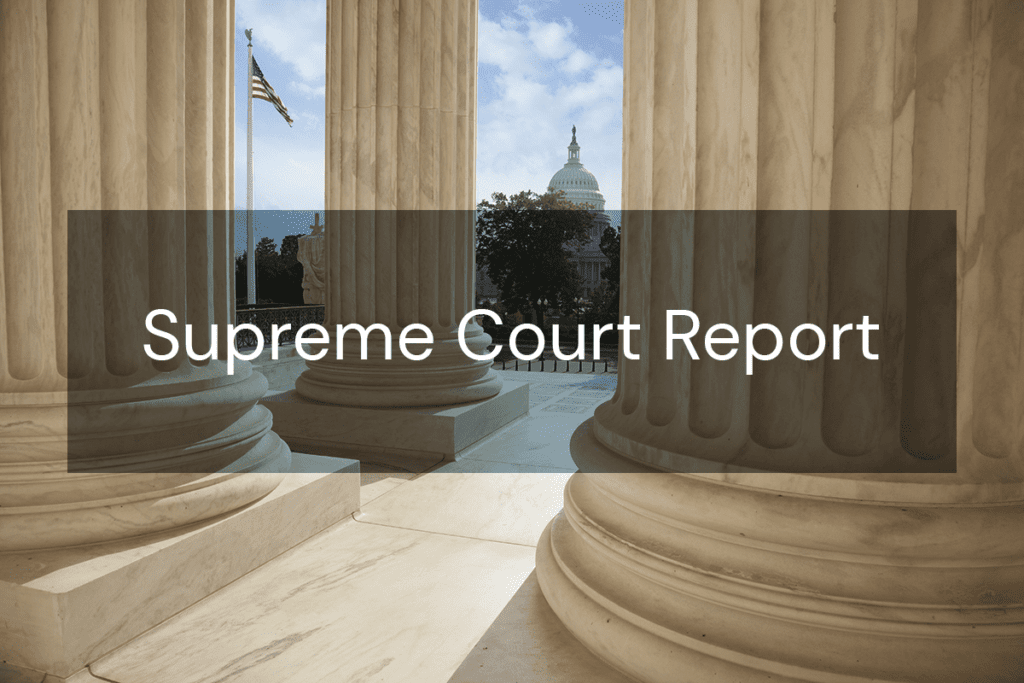Author
Topics
Year
Search
- Criminal Law
- Cybersecurity and Privacy
Crypto-Crackdown: Criminal Forfeiture of Cryptocurrencies by States
The increasing use of cryptocurrencies in recent decades and their widespread use by criminal organizations for illicit transactions has created new challenges for law enforcement across the country.
- Supreme Court
Supreme Court Report, Volume 33, Issue 4
This Report summarizes opinions issued on November 24 and December 8 (Part I); and cases granted review on December 5 and 15, 2025 (Part I).
- Supreme Court
Supreme Court Report, Volume 33, Issue 3
This Report summarizes cases granted review on November 10 and 17, 2025 (Part I).
- Supreme Court
Supreme Court Report, Volume 33, Issue 2
This Report summarizes cases granted review on October 20, 2025 (Part I).
- Supreme Court
Supreme Court Report, Volume 33, Issue 1
This Report summarizes cases granted review on October 1, 3, and 10, 2025 (Part I).
- NAAG, Attorneys General
- Powers and Duties
Recent Attorney General Powers and Duties Cases — In Brief | Mid 2025
In this article, cases from Arkansas, California, Missouri, New Jersey, Texas, Vermont, and Wisconsin are explained.
- Criminal Law
Congress’s Attempt to Criminalize Nonconsensual Intimate Imagery: The Benefits and Potential Shortcomings of the TAKE IT DOWN Act
More than 100 organizations, including Microsoft, the NCAA, and the National Association of Counties, endorsed the legislation. The law is a federal response to the proliferation of nonconsensual intimate imagery (NCII).
- Criminal Law
The Escalating Threats of Doxxing and Swatting: An Analysis of Recent Developments and Legal Responses
Once considered fringe internet behaviors, doxxing and swatting have evolved into sophisticated, technology-enabled tools of harassment, coercion, and public endangerment.
- Criminal Law
Who’s Allowed in the Jury Room? ― When Technicians Affect Impartiality
Who is allowed in a jury deliberation room? On its face, the answer appears straightforward: only the jury. But as courtroom procedures evolve alongside the digital age, this once-simple question reveals deeper legal and constitutional complexities.
- Supreme Court
Supreme Court Report, Volume 32, Issue 21
This Report summarizes cases granted review on July 3, 2025 (Part I).
- Supreme Court
Supreme Court Report, Volume 32, Issue 20
This Report summarizes cases granted review on June 30, 2025 (Part I).
- Supreme Court
Supreme Court Report, Volume 32, Issue 19
This Report summarizes opinions issued on June 27 and 30, 2025 (Part I).








